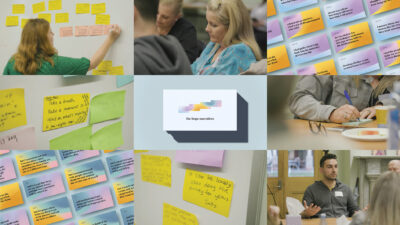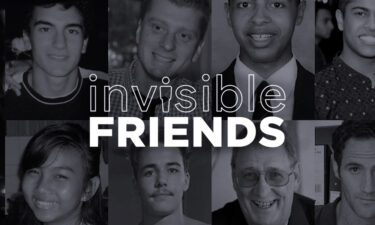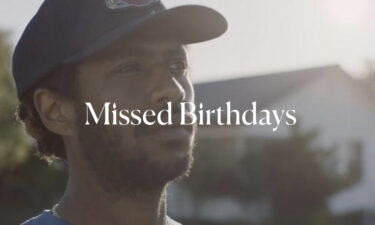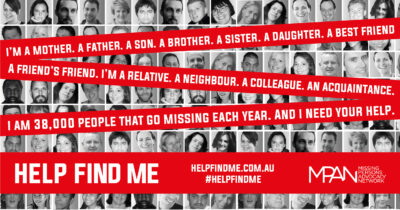Is your loved one missing? See our dedicated site with advice, a checklist and templates.
About us
The only charity of its kind, supporting those impacted by a long-term disappearance, led by a founder with lived experience.
With a deep understanding of the variety of unmet needs this community faces, we help families and friends navigate the unknowns so that they can better manage living with ambiguous loss.
We launch creative initiatives that humanise missing loved ones, engage the public through strategic communications, empower families with opportunities and specialised supports, and educate the public on associated issues like ambiguous loss.
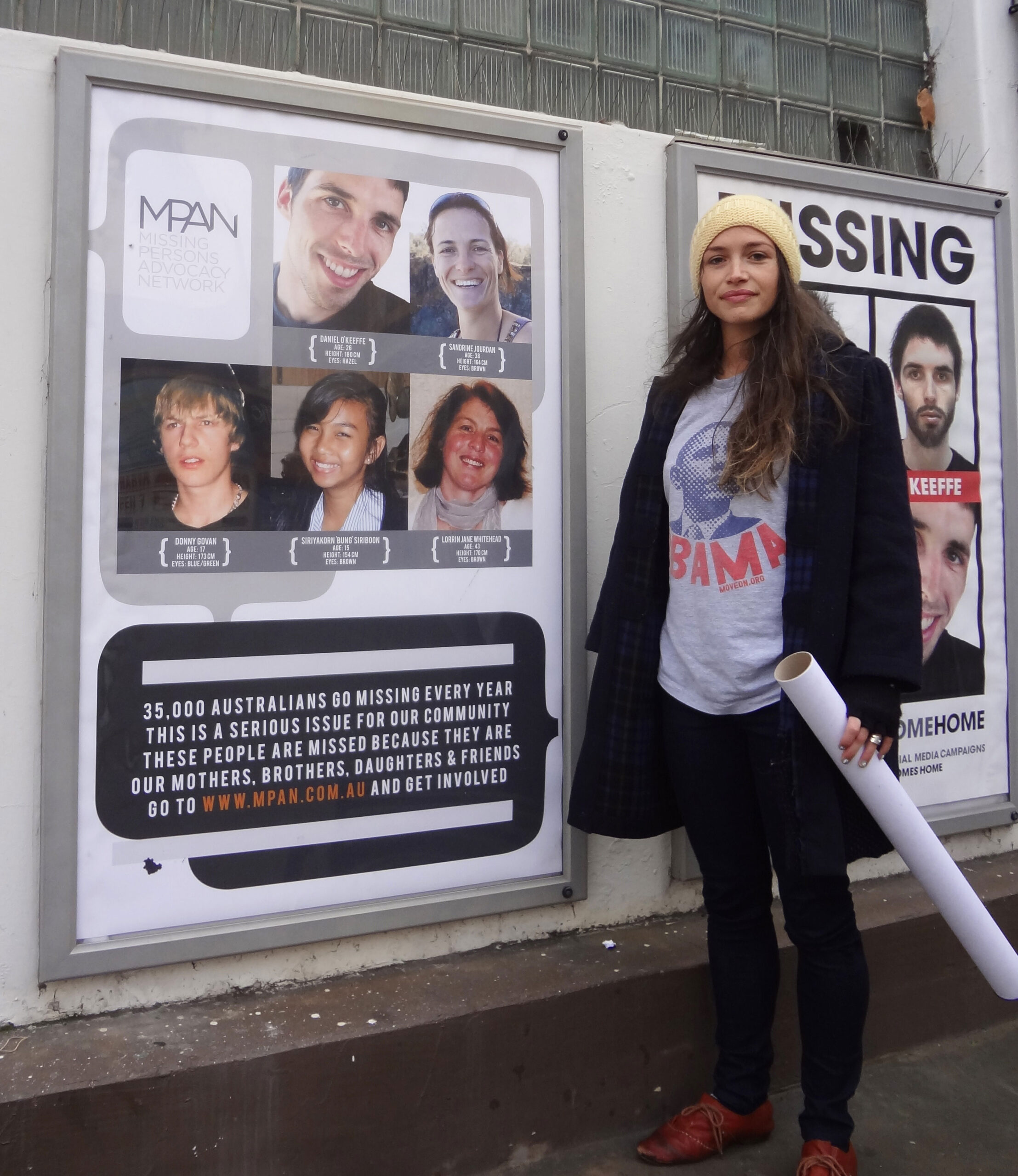

Our vision
For every Australian impacted by missingness to have access to the type of support they need, when they need it.
OUR PURPOSE
Impact statement
The Missed Foundation exists to humanise missing loved ones, alleviate the impact on their families and friends, and transform the way society responds.
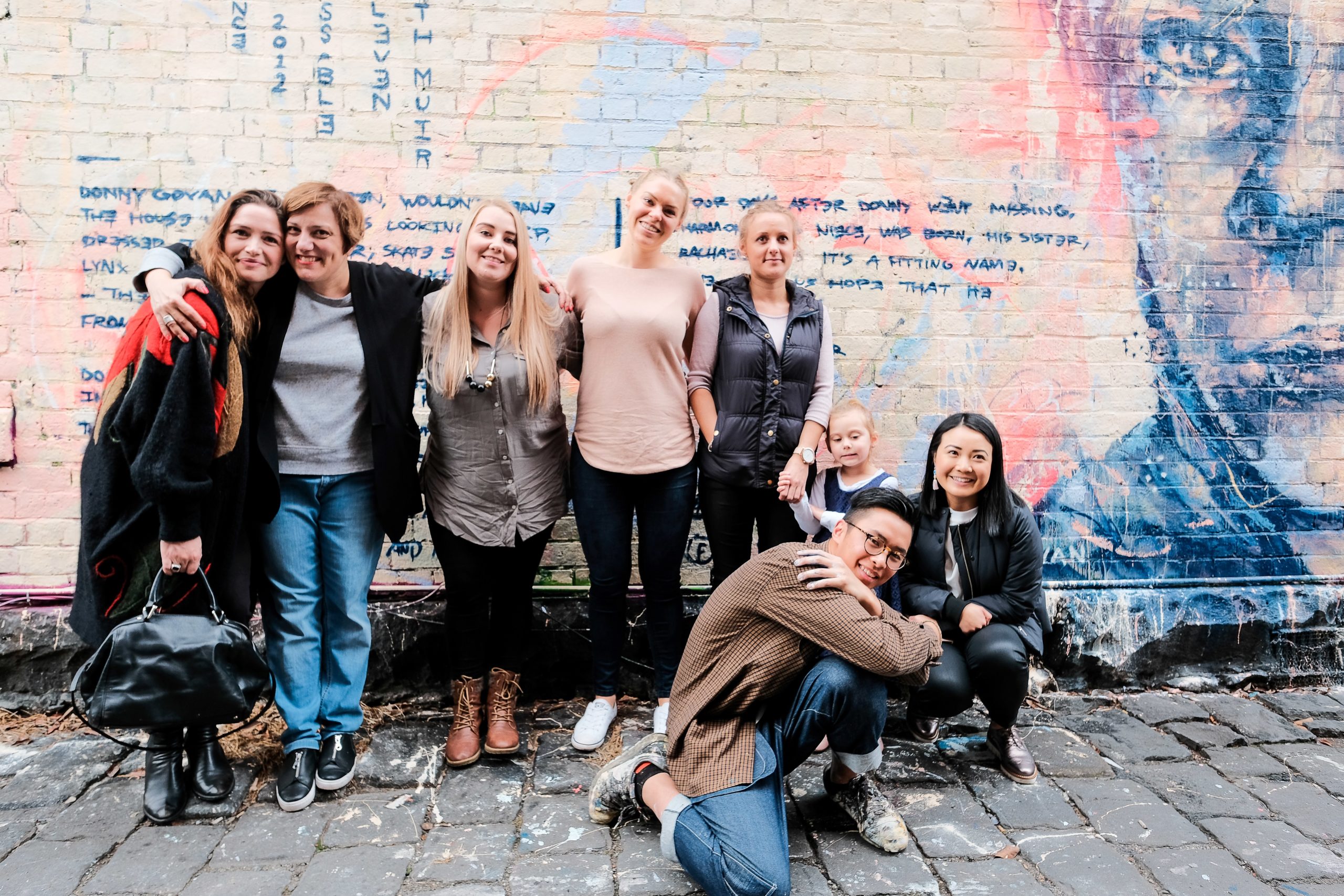
Est 2013
Our story
The unprecedented response to the disappearance of Dan O’Keeffe led to the establishment of this charity 18 months after he went missing. Missed is Dan’s legacy, and it is the lived experience of families like his that continues to drive the creative, innovative and meaningful work of the Foundation.

Our values
Integrity
Honour the missing, support the families in solidarity and unite key stakeholders. Be dependable.
Trust
Fairness, honesty and respect. We rely on experience and expertise to guide decision-making.
Authenticity
Stay true to the originality of the organisation and take pride in our uniqueness.
Impact
Everything we do has the purpose of causing positive change.
Perseverance
We expect hurdles – this is a complex issue that requires cross-sector collaboration – but we never give up.
Our Work
Case studies of the progress we’ve made so far

Our research
Understanding the magnitude of it all
Missing persons has far-reaching impacts on many more cohorts than just the families and friends, and many more sectors than just police. To address this growing issue, we must consider the various factors at play.
